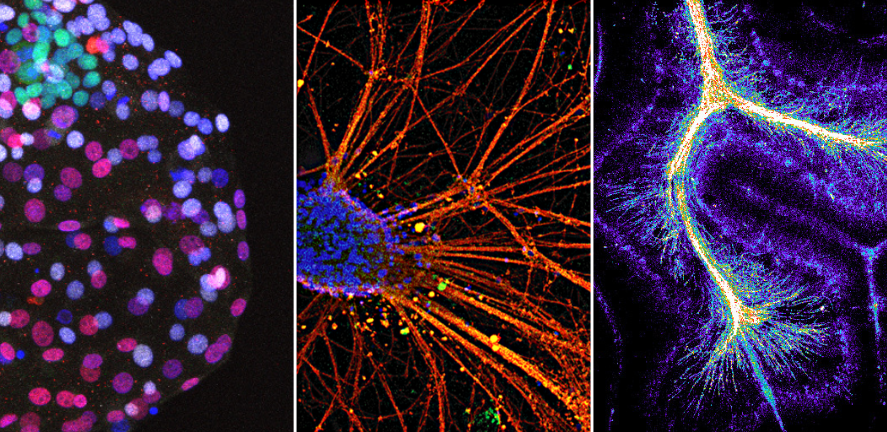
Stem cells have the extraordinary ability to develop into any type of cell in the body, and are found in many places, from developing embryos to adult tissues including the brain, bone marrow, skin and liver.
Research at the Cambridge Stem Cell Institute falls under three key themes: Stem Cell States, Stem Cells in Disease, Stem Cells & Therapeutics. Many of our scientists contribute to more than one theme, and within these themes we have particular strengths in pluripotency, haematopoiesis, neural and epithelial stem cells.
We have 28 research groups with over 300 biological, clinical and physical scientists operating across a wide range of tissues and at multiple scales. This arrangement allows commonalities and differences in stem cell biology to be explored in a cohesive and interdisciplinary manner.
The Institute also has 38 affiliated researchers across 13 University departments, as well as the Babraham Institute, Wellcome Sanger Institute and MRC-LMB.
Theme 1: Stem Cell States
We study the fundamental biology of pluripotent and adult stem cells to understand the mechanisms by which they self-renew, maintain their states and commit to differentiate into all the cell types of the body. We aim to achieve new insight into these long-standing issues through a programme of innovative and cross-disciplinary investigation that integrates knowledge at multiple scales across different tissues and organisms.
Theme 2: Stem Cells in Disease
Many disease states arise (malignancies) or persist (regeneration failure) as a result of stem and progenitor cell dysfunction. Underpinned by our exploration of normal stem cell states, we are investigating the mechanisms responsible for pathological behaviours of stem and progenitor cells. We focus particularly on malignancy and regenerative failure, in studies which are laying the foundation for new approaches to diagnosis and treatment.
Theme 3: Stem Cells & Therapeutics
We exploit the potential of stem cells to model diseases in vitro and to generate new diagnostic and therapeutic approaches. Patient-derived induced pluripotent stem cells and organoids, combined with advanced genome engineering technology, provide excellent platforms for studying human diseases in vitro. In addition several investigators are developing first-in-human clinical trials of cellular therapies using stem cell derivatives.

